 |
'69 In the News, 2011-2012:Click Here to submit a news article to the Webmaster.For more news, see also our Reunions & Mini-Reunions page and our Archived News page.David Fisher receives Alumni Council Award for Service to Princeton
In 1972 the Alumni Council
established the Alumni Council Award for Service to Princeton to honor
members of the University Community, especially those who have served
over a long period of time and whose service has not already been widely
recognized. Classmate David Fisher is one of this year’s recipients.
We honored David and spouse Étel at our 43rd Reunion dinner Saturday
evening. Click here to see David’s nomination by the Class. (Updated 6/18/2012) Moravian’s President Christopher M. Thomforde to Retire in 2013President of both the College and the Seminary to retire after seven years of leadership Posted June 27, 2012
"Serving Moravian has been a privilege and an honor,” said Thomforde who has served as president since 2006. "As I reflect upon the activity of the past six years, I am most grateful for all that has been accomplished by so many good and committed people at both the College and the Seminary. At the same time, I am looking forward to working with faculty, staff and administrators to continue to strengthen the College this coming year.” "On behalf of the Board of Trustees, I
acknowledge with regret the retirement of President Thomforde as President of
Moravian College, effective July 2013” said Lyn Trodahl Chynoweth, chair of
Moravian’s Joint Board of Trustees. "Chris's leadership, during especially
tumultuous times, has been solid and strongly affirmed by the board of trustees
and the Moravian community. His commitment to our mission and our purpose
has been steadfast. He has overseen projects that enhanced programs and
improved facilities for our students. We are most grateful for Chris’s
tenure and the imprint his Presidency will leave behind.”
Thomforde also presided over improvements to the campus facilities and infrastructure including significant new buildings and renovations: the 231-bed Hurd Integrated Living and Learning Community (The HILL); a new home for the Comenius Center, Benigna Hall; renovations to the Haupert Union Building including the Pavilion; and a new state-of-the-art fitness facility. In addition, renovations to Comenius Hall and the Collier Hall of Science are now underway. Thomforde, who also serves as president of Moravian Theological Seminary, has been equally impactful in improving its programs and facilities. "Chris has been a prophetic voice in his leadership of the Seminary” said the Rev. David Bennett, chair of the Seminary Board of Trustees. "Foreseeing the need to adapt to the ever changing needs of the Church, he is leading us through curriculum revisions which will better prepare our students for effective leadership and service. He also led the Seminary through a successful capital campaign resulting in enhancements to the Bahnson Center and financial support for faculty positions and student financial aid.” Thomforde’s extensive career in higher education includes the following: Thomforde earned a B.A. in Medieval and Russian history from Princeton University in 1969.
From 1974 to 1978, Thomforde was an assistant chaplain and instructor in philosophy and religion at Colgate University. From 1978 to 1986, he served as pastor at St. Paul’s Lutheran Church in Dansville, New York, where he provided pastoral care and leadership for his congregation, held leadership roles in regional and synod church affairs, and was very active in community organizations. Thomforde served as chaplain at Susquehanna University and taught in the Department of Philosophy and Religion from 1986 until 1996. Susquehanna University awarded him an honorary Doctor of Divinity degree in 2001. Thomforde also served as president of Bethany College in Lindsborg, Kansas, from 1996 to 2000. During his tenure as Bethany president, Thomforde completed requirements for a D. Min. from Princeton Theological Seminary; he was awarded that degree in 2000. Before his appointment as the President of Moravian College and Moravian Theological Seminary, he served as the President of St. Olaf College in Northfield, Minnesota from 2001-2006. Moravian College is a private, coeducational, selective liberal arts college located in Bethlehem, Pennsylvania. Tracing its founding to 1742, it is recognized as America's sixth-oldest college. Moravian partners with students to build a strong foundation for their future. Visit the College’s Web site at www.moravian.edu. Indiana's Chief Justice Randall Shepard hailed as Court's Payton Manning
Posted March 19, 2012, in the Indianapolis Star 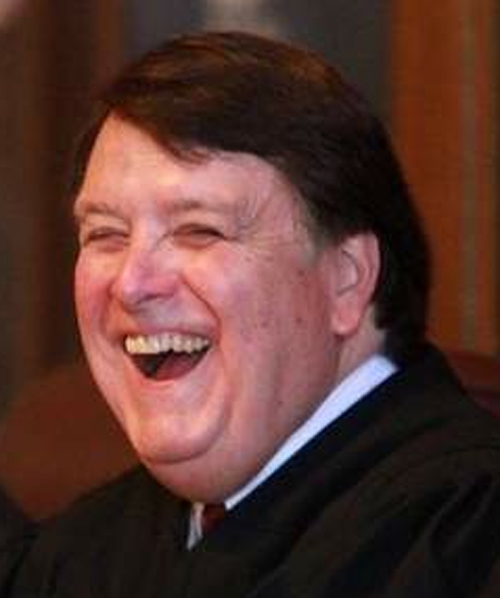 Randall T. Shepard wiped away tears today as he was feted by judges, governors, lawyers and more honoring his retirement after 27 years on the Indiana Supreme Court and 25 as its chief justice. Shepard, who is the longest-serving state court chief justice in the nation, announced on Dec. 7 that he would leave the bench in March. In his farewell speech, Shepard said he is "still working out just where I'll be." Randall T. Shepard wiped away tears today as he was feted by judges, governors, lawyers and more honoring his retirement after 27 years on the Indiana Supreme Court and 25 as its chief justice. Shepard, who is the longest-serving state court chief justice in the nation, announced on Dec. 7 that he would leave the bench in March. In his farewell speech, Shepard said he is "still working out just where I'll be."But, he said, he has at least four roles planned so far: senior judge in the state court of appeals, "where I doubtless will finally find out what they actually think about my opinions;" a director of Justice At Stake, a national organization that advocates for impartial courts untainted by campaign contributions; visiting scholar at the University of Cincinnati College of Law; and guest editor of Indiana University's history journal.Gov. Mitch Daniels -- who will name a new Supreme Court justice to replace Shepard as early as this week -- told the crowd packed into the Supreme Court chambers to celebrate Shepard -- that is as hard to think of the court without Shepard as it is to think of Indianapolis Colts without Peyton Manning. Indiana was lucky, Daniels said, that he lost election in 1979 to be mayor of Evansville. That loss turned into the state's gain, the governor said, when he instead began a career on the bench. "I betcha every one in this room believes Indiana got the better end of that bargain," Daniels said. Shepard was praised as a nonpartisan gentleman who respected others opinions while nudging them toward new ways of thinking, and who revered the court's traditions while also seeking reforms. Among those honoring him today were federal judges -- with messages sent by two U.S. Supreme Court Justices, Clarence Thomas and Elena Kagan; other state and local judges; the presidents of the Evansville, state and national bar associations; the many attorneys who were law clerks for Shepard over the years; U.S. Attorney Joe Hogsett and former U.S. Attorney Deborah Daniels; and former Gov. Joe Kernan, a Democrat. Kernan and Shepard were co-chairmen of a committee appointed by Daniels to reform local government. Shepard, his face clearly struggling with the emotions he felt, said that the people who joined him today show that "this is a profession, a judiciary, with reform in its heart, one that maybe rarely first and occasionally last but is frequently early; whose players have their eyes on the horizon and their feet planted firmly on Indiana ground. And, yes, one that leads reformers in other states confronting the toughest legal challenges of the day sometimes to turn to each other and ask, 'What do you suppose Indiana has done about this?'" The praise heaped on him today, he said, reflected "joint effort and collective commitment, both by judges, lawyers and scholars inside the profession" and by allies outside it in other branches of government. Shepard's last day of work will be Friday.
"A Magical Legacy" - President Tilghman recognizes David Gardner and Lynn ShostackPosted Friday, February 24, 2012 from the March 7 issue of the PAW
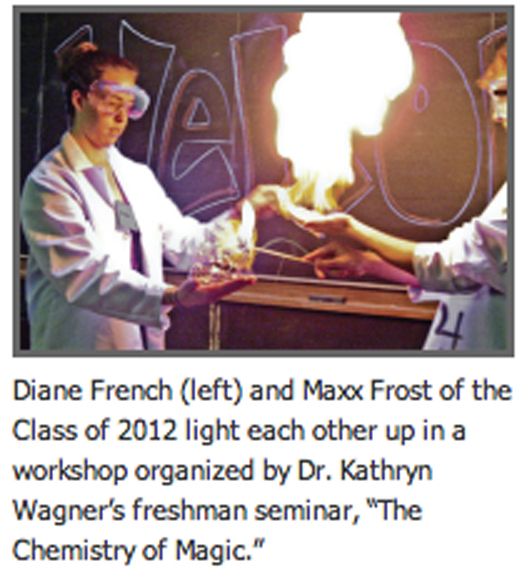 Whatever the January 13 issue of The Daily Princetonian might lead you to believe, Princeton is not Hogwarts, but thanks to the David A. Gardner '69 Magic Project, our faculty, staff, and students have been able to do some extraordinary things. Prior to his untimely death in 2001, David was a successful real estate developer and venture capitalist, widely admired for his integrity, generosity, and charm. He was also an accomplished magician -- an avocation he embraced in childhood, practiced at Princeton to the delight of his Quadrangle Club mates, and pursued throughout his life. As his entry in The Nassau Herald noted, "He would most like to be remembered for his program of perfidious prestidigitation." Whatever the January 13 issue of The Daily Princetonian might lead you to believe, Princeton is not Hogwarts, but thanks to the David A. Gardner '69 Magic Project, our faculty, staff, and students have been able to do some extraordinary things. Prior to his untimely death in 2001, David was a successful real estate developer and venture capitalist, widely admired for his integrity, generosity, and charm. He was also an accomplished magician -- an avocation he embraced in childhood, practiced at Princeton to the delight of his Quadrangle Club mates, and pursued throughout his life. As his entry in The Nassau Herald noted, "He would most like to be remembered for his program of perfidious prestidigitation."To honor this passion, David's widow, Lynn Shostack, created some magic of her own by endowing a fund within the Council of the Humanities to "encourage unusual, even surprising, intellectual endeavors that depart from the status quo and have the potential to reshape a body of knowledge." Like dazzling sleights of hand, transformative scholarship and pedagogy defy conventional wisdom, but unlike conjurers, who are encouraged to attempt the seemingly impossible, scholars and teachers who venture into uncharted waters often find themselves without support. Sometimes their work is deemed too risky; sometimes it transgresses disciplinary boundaries; and sometimes it must yield to higher departmental or institutional priorities. As a result, there are a host of what Lynn calls "intellectual nooks and crannies" that might not receive the attention they deserve. And this is unfortunate, for it is often at the interstices of knowledge that the most important insights can be found.
Happily of Princeton, Lynn has ensured that every year as many as two dozen innovative proposals, primarily in the humanities but also in the social and natural sciences, receive the support they need to blossom. Some have an explicitly magical focus, such as two conferences on Renaissance magic and its relationship to modern science, reflecting, in professor of English Nigel Smith's words, that "the two ways of explaining the universe were far more continuous than has been acknowledged." Another example can be found in an unforgettable freshman seminar developed by the Department of Chemistry's Kathryn Wagner. Called "The Chemistry of Magic," it was designed to introduce non-science majors to chemical concepts and, more broadly, to the scientific method by studying, optimizing, and demonstrating effects historically associated with the world of magic. For her students, as well as those attending public presentations of these feats, science was revealed as something truly exciting -- a description not often associated with first-year survey courses!
Similarly, Professor of Spanish and Portuguese Languages and Cultures Ruben Gallo was able to develop "the most enjoyable and rewarding course I have taught at Princeton," an undergraduate seminar on the history of magic lanterns. Invented in the 17th century, these projection devices were closely associated with the supernatural before assuming more mundane educational and entertainment roles in the 19th, paving the way for the cinematograph and, ultimately, the motion pictures that we know today.
But more often than not, the initiatives supported by the Gardner fund are magical not in terms of subject matter but in terms of their effects, opening gateways to ideas, approaches, and materials that would otherwise be largely or wholly inaccessible. There is a wonderful eclecticism to the proposals that are funded, both with respect to the questions they address and the activities they foster. Indeed, what makes Lynn's gift so special, beyond its bold embrace of the unusual, is that it is potentially a gift for everyone.
To give you just a few examples, the Gardner fund has supported Assistant Professor of Comparative Literature Susan Draper's research into the neglected writings of female political prisoners in Latin America, as well as a remarkable course by Professor of Sociology Mitchell Duneier that uses the songs of Bruce Springsteen and his E Street Band as an entree to contemporary social issues. It has enabled Professor of Near Eastern Studies Michael Cook to establish a three-week summer school designed to spark "a renaissance" in the study of Arab dialects, while supporting an entirely new kind of musical expression in the form of Princeton's celebrated laptop orchestra, which brings together music and computer science in a way that re-imagines traditional ensembles.
And it has furthered the work of both the art museum and the library, be it by supporting a forthcoming exhibition that explores the multifaceted role of Africans in Renaissance Europe -- the first of its kind to do so -- or by enabling the Department of Rare Books and Special Collections to digitize, catalog, and make available online a priceless collection of 800 French silent films. As graphics Arts Librarian Julie Melby put it, "Thanks to the generosity of Lynn Shostack and two grants from the David A. Gardner '69 fund, Princeton university students and faculty will soon have the delight of viewing these silent 'flickers' just as their grandparents might have done in the 1920s."
Now, if that isn't magic, I don't know what is!
2011 Class Dinner features environmental discussionPosted Tuesday, December 6, 2011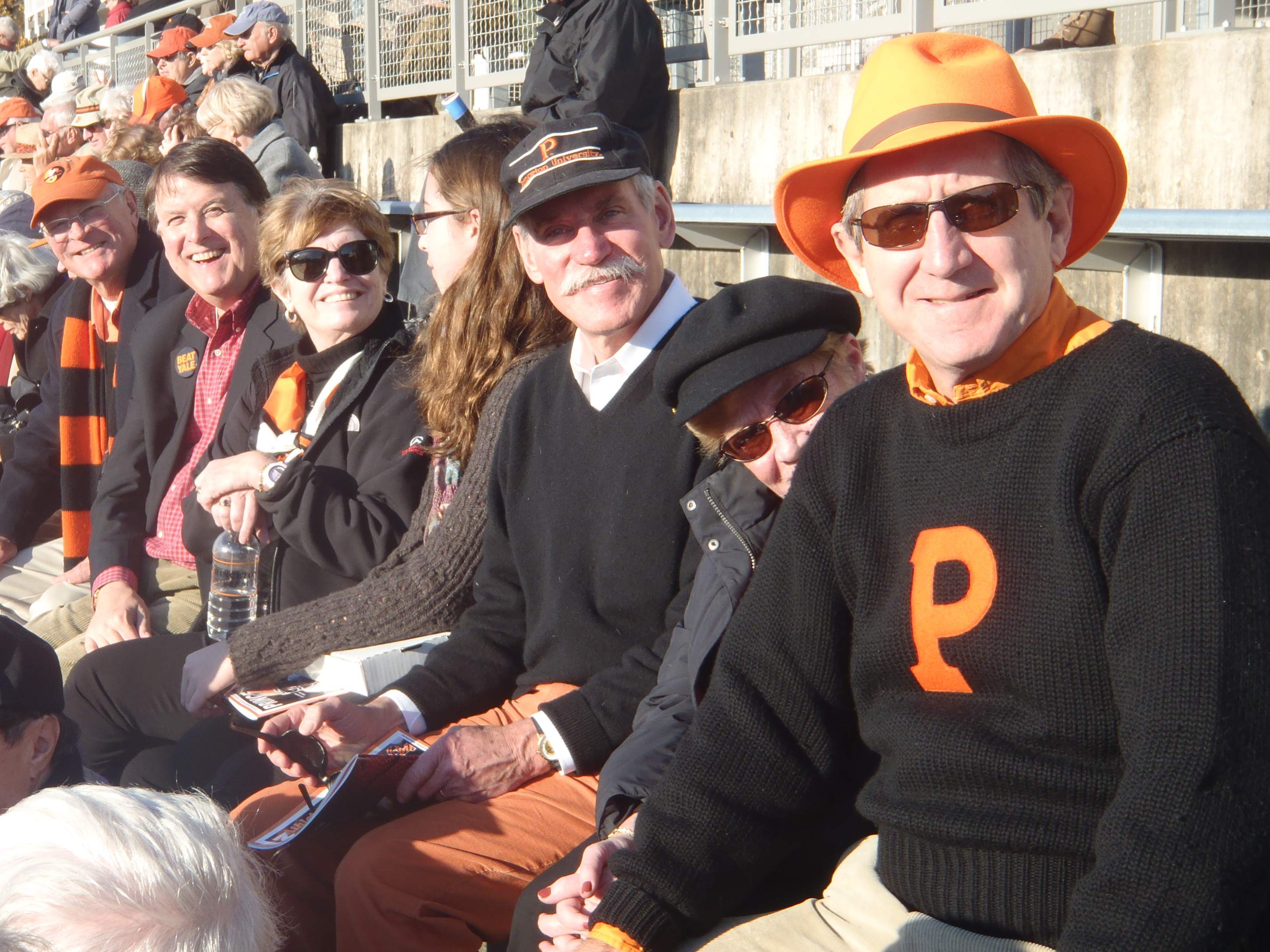 November 12th was a spectacular Autumn day, perfect for our Class' traditional Fall events. The day began with a Class Steering Committee meeting, which featured a discussion of what to do next in the mini-reunion department after the smash hit at Springfield in October (full report coming soon to our web site). Watch your e-mail and the web site to get involved in the selection among several compelling options. The Steering Committee also discussed broadening the focus of our events from the primarily historical emphasis thus far. The evening's science-related topic was our first step in that direction, and bodes well for future wide-ranging topics. November 12th was a spectacular Autumn day, perfect for our Class' traditional Fall events. The day began with a Class Steering Committee meeting, which featured a discussion of what to do next in the mini-reunion department after the smash hit at Springfield in October (full report coming soon to our web site). Watch your e-mail and the web site to get involved in the selection among several compelling options. The Steering Committee also discussed broadening the focus of our events from the primarily historical emphasis thus far. The evening's science-related topic was our first step in that direction, and bodes well for future wide-ranging topics.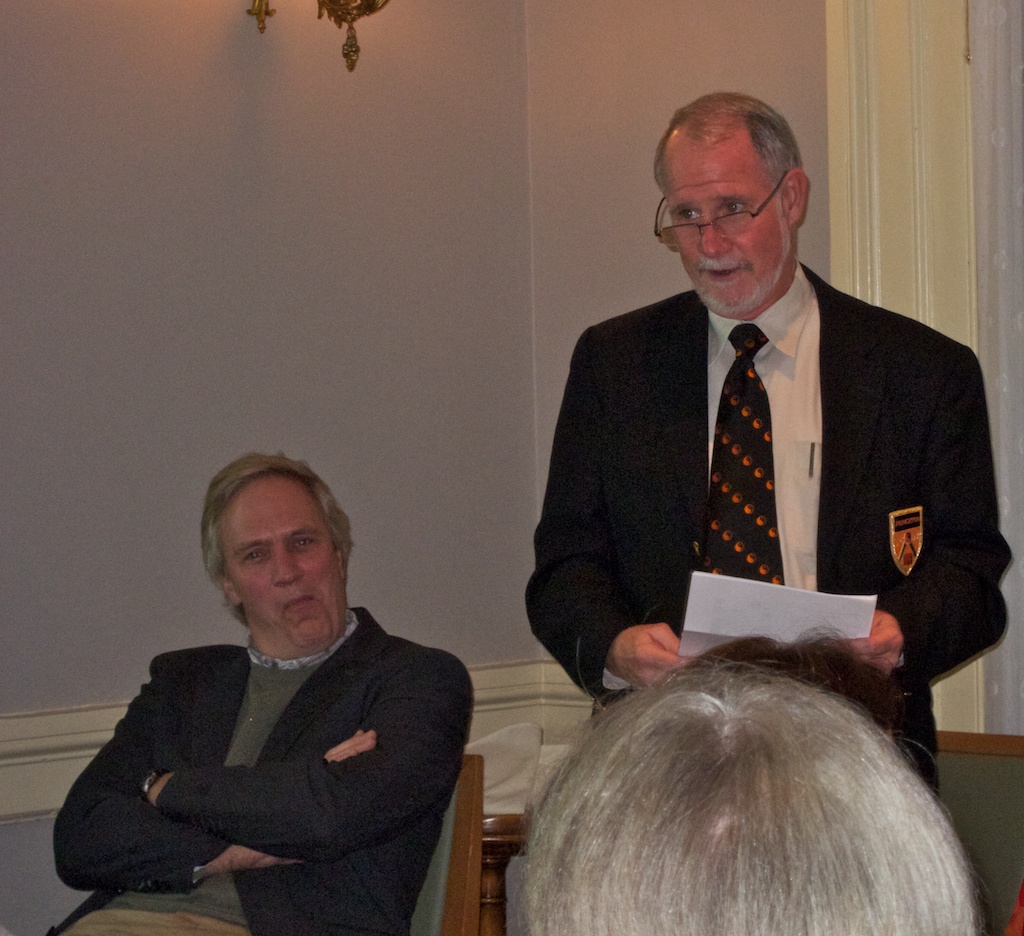 The Steering Committee meeting was followed by our traditional '69 pre-game tailgate and the Princeton-Yale football game, after which the largest group of classmates in some time turned up for the Fall class dinner in historic Prospect House. EEB Prof. Steve Pacala, Director of the Princeton Environmental Institute, spoke on the consequences of procrastination due to political deadlock in addressing the climate change problem. This was our first science topic at a Class dinner, Prof. Pacala showed why it won't be the last, with an engaging, energetic, and sometimes controversial presentation. Prof. Pacala also acknowledged classmate Dr. Paul Hanle's contributions in the area of Climate Change awareness. Paul is president and CEO of Climate Central, an independent, non-profit journalism and research organization dedicated to helping mainstream Americans understand how climate change connects to them, and arming their audiences with the knowledge they need to make informed decisions about their future. The Steering Committee meeting was followed by our traditional '69 pre-game tailgate and the Princeton-Yale football game, after which the largest group of classmates in some time turned up for the Fall class dinner in historic Prospect House. EEB Prof. Steve Pacala, Director of the Princeton Environmental Institute, spoke on the consequences of procrastination due to political deadlock in addressing the climate change problem. This was our first science topic at a Class dinner, Prof. Pacala showed why it won't be the last, with an engaging, energetic, and sometimes controversial presentation. Prof. Pacala also acknowledged classmate Dr. Paul Hanle's contributions in the area of Climate Change awareness. Paul is president and CEO of Climate Central, an independent, non-profit journalism and research organization dedicated to helping mainstream Americans understand how climate change connects to them, and arming their audiences with the knowledge they need to make informed decisions about their future.  In attendance were Don and Lorette Adams, Jim Blackburn, Dick Bott, Steve and Susan Boughn, Andy Brown, Thacher and Lloyd Brown, Bill and Anne Charrier, Bruce and Amy Freeman, Chuck and Judy Freyer, Mike and Lor Gehret, Paul Hanle and Joan Burroughs, Randy and Mary Hack, Dan and Leigh Harman, Chip and Marilyn Jerry, Jeff Kaplan, Steve and Sue Kennedy, Mike and Tertia Kiesel, Rick and Chris Kitto, Earl and Vicky Kivett, Neil and Marcy Lewis, Jeff and Maureen Marston, Clay and Pinky McEldowney, Ken Mertz, X and Lou Shannon, Bob and Barbara Wolfe, Greg Zaic and Cheryl Patterson In attendance were Don and Lorette Adams, Jim Blackburn, Dick Bott, Steve and Susan Boughn, Andy Brown, Thacher and Lloyd Brown, Bill and Anne Charrier, Bruce and Amy Freeman, Chuck and Judy Freyer, Mike and Lor Gehret, Paul Hanle and Joan Burroughs, Randy and Mary Hack, Dan and Leigh Harman, Chip and Marilyn Jerry, Jeff Kaplan, Steve and Sue Kennedy, Mike and Tertia Kiesel, Rick and Chris Kitto, Earl and Vicky Kivett, Neil and Marcy Lewis, Jeff and Maureen Marston, Clay and Pinky McEldowney, Ken Mertz, X and Lou Shannon, Bob and Barbara Wolfe, Greg Zaic and Cheryl Patterson'69 Golf convenes at Springdale CCPosted Friday, July 1, 2011 This photo was taken on Tuesday June 21, 2011. Murph McCarthy, Clay McEldowney, Rick Kitto and X. Shannon (left to right) convene 4x a season to play at our respective clubs. "We call it ’69 golf for lack of a better term. This year, we happened by Hal Hoeland (far right), a member at Springdale (you’ll recall - PU golf captain in ’69, certainly not in our league!), who joined in the pic." This photo was taken on Tuesday June 21, 2011. Murph McCarthy, Clay McEldowney, Rick Kitto and X. Shannon (left to right) convene 4x a season to play at our respective clubs. "We call it ’69 golf for lack of a better term. This year, we happened by Hal Hoeland (far right), a member at Springdale (you’ll recall - PU golf captain in ’69, certainly not in our league!), who joined in the pic." |
 |
Powered by Bonfire™ - a Reunion Technologies Solution.

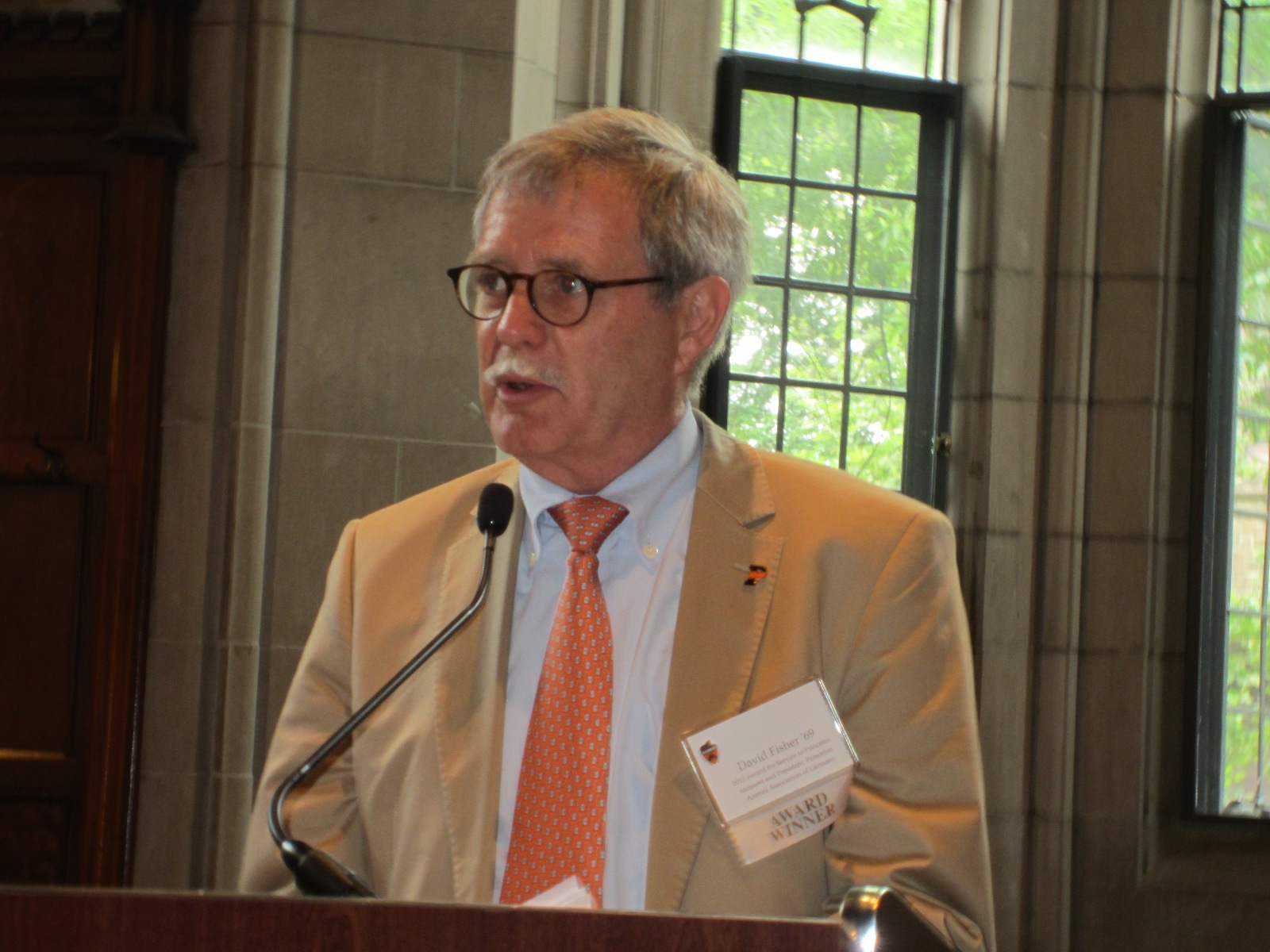
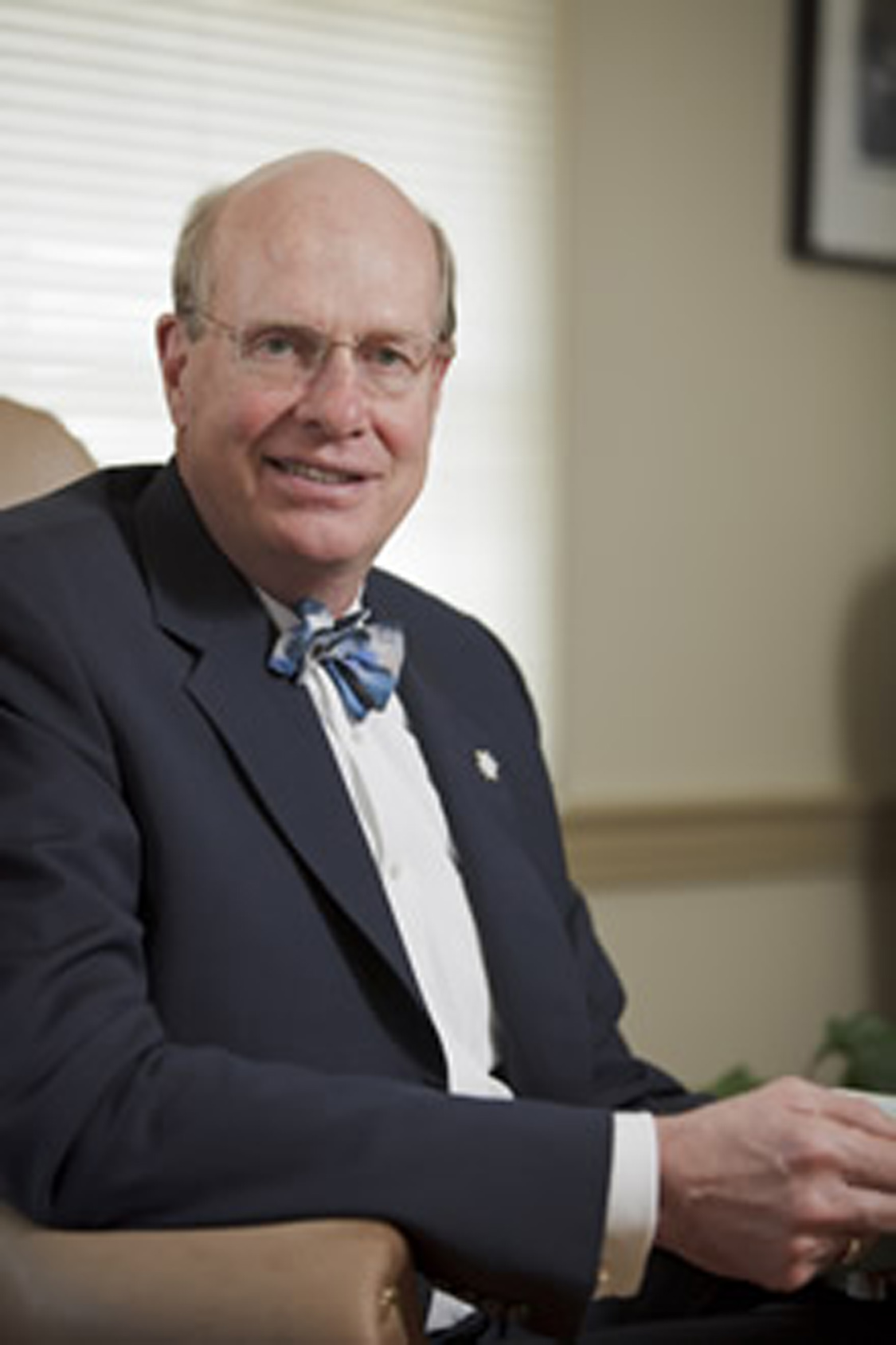 Bethlehem, Pa., June 26, 2012—Christopher
M. Thomforde announced he will retire from his position as president of
Moravian College and Moravian Theological Seminary, approximately one year from
now in July of 2013. His retirement, after leading Moravian for seven
years, will cap a highly successful career in higher education.
Bethlehem, Pa., June 26, 2012—Christopher
M. Thomforde announced he will retire from his position as president of
Moravian College and Moravian Theological Seminary, approximately one year from
now in July of 2013. His retirement, after leading Moravian for seven
years, will cap a highly successful career in higher education.